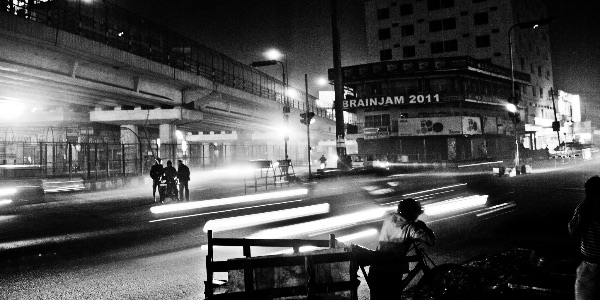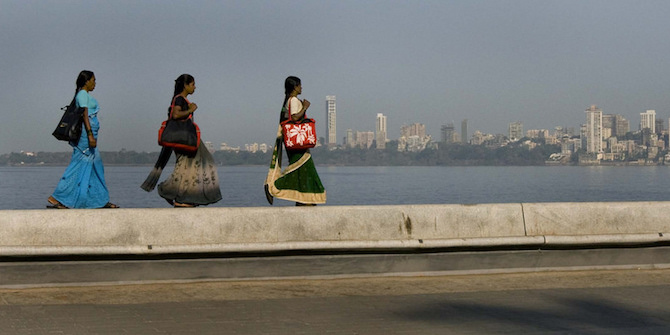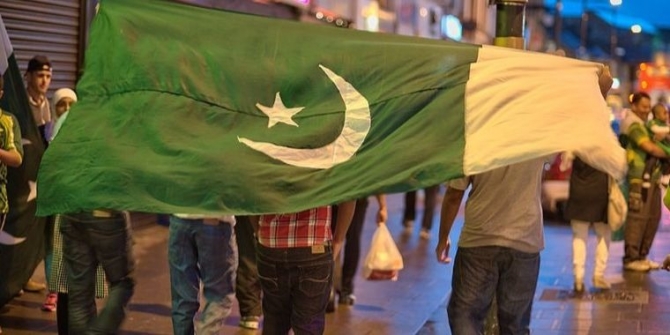In response to Professor Sanjib Baruah‘s article ‘Stateless in Assam‘ which discussed a new focus on detention camps for ‘stateless citizens’, Suraj Gogoi, Gorky Chakraborty and Parag Jyoti Saikia reflect on the implications of reducing people to ‘bare life’.
The Concentration camps that came to the fore during the Holocaust, left a deep impact on human history. It showed us that hate can be nurtured to humiliate, torture, and reduce people to ‘bare life’. The concept of the ‘exception’ used by Hannah Arendt and Giorgio Agamben has been articulated in the context of Northeast India by Professor Bimol Akoijam, as to how the Indian state through the Armed Forces Special Power Act (AFSPA) inhumanely treats its own citizens and the whole region as a ‘different minority’. However, the manner in which Prof. Sanjib Baruah used this example in his article ‘Stateless in Assam’, in invoking the idea of camps sends chills down the spine, as he presents enforced settlements as normal human condition, a fate to be endured for some. His views on camps have been lauded by a number of caste Assamese intellectuals, amongst others. It has thus created a ‘state of exception’ in a space which itself is a ‘state of exception’ to the Indian state. This double exceptionality makes the lives of Hanif Khan, who killed himself over fears he was excluded from a list that identified ‘legitimate’ Assamese citizens, and a host of others extremely precarious.
Since Professor Baruah has invoked this idea of exception, let us in return, invoke the idea of love and solidarity. Martha Nussbaum notes that cultivating love instead of hate would make the world a better place to live in. The lack of love, in the public and in our emotions, should be an area of great concern. Hanif Khan and his family needed love and solidarity, not a reminder of Arendt’s work, which indeed became a mockery of his life. Such an injunction creates what W.E.B. Du Bois called ‘twoness’ or even a stranger. It is the worst form of alienation where you see yourself through the eyes of the other. Being poor is hard, but to be despised by the society, the state, and its institutions estranges an individual in everyday life. Becoming a ‘problem’ is a ‘strange experience’ itself, no one needs to reiterate the point that one is a stranger. Such things only amplify the distance and distinction. What does such a position from a senior writer on the Northeast inform us?
Professor Baruah’s article also misses out on certain fundamental issues associated with National Register of Citizens (NRC). The idea of an ‘original inhabitants’ state in NRC is contrary to equal citizenship, as arbitrariness and suspicion loom large around the identification process. The legacy data of 1951 and 1971 was taken as the basis on which the citizenship of the people living in Assam was to be determined. However, there was hardly any question raised about these legacy documents, since they were considered sacrosanct. The legacy documents were no census documents. Rather, they were rough notes books of census enumerators which lack official validity.
NRC is using majoritarianism in the worst possible manner. It misuses law in making minorities stateless. As a form of identification, non-inclusion reduces an individual to a lesser human being. Deportation is perhaps a bilateral issue, while death isn’t. A matter of life and death, fear and pain, should not be an issue of ‘business’ and ‘watching’. His position ignores the reduction of people’s lives to a mere piece of document, the resultant alienation and social pain. His belief placed on public officials to ensure ‘accuracy’, leaves no space to question the process of preparing NRC. An argument such as this is surprising, since, for many students of our generation who became interested in studying the Northeast, his India against Itself taught us to question the state in the Northeast. It presented the rhetoric of state making, mired in violence. However, the rhetoric of suicide and a text on Holocaust is the last thing one should compare, particularly when it lacks sensitivity and love, which was evident the manner in which Professor Baruah ended his article.

Guwahati at night. Photo credit:Dipayan Bhattacharjee, Flickr, CC BY-NC-ND 2.0.
Professor Baruah’s assertion also suffers from taking a linear view of a very complex bureaucratic and social process. In this light, sharing an account written by Dr. Debarshi Das, a faculty in IIT Guwahati, of his own family.
“My aunt Putul was born in Pandu in 1950s. Her parents came to Assam as East-Bengali migrants. She got married to a muffasil town and after her marriage, her name no more remained the same. In her in-laws family there were two other people with the same name, Putul and following from this her name was changed from Putul Guha to Kabita Das. In 2016, when police came to enquire about the citizenship status, they noticed the differences in her pre- and post-nuptial documents. Without any delay she was sent to detention camp at the age of sixty”.
One of the first proponents of detention or concentration camps in the context of Northeast was S.K.Sinha. One can read his letter to the President of India dated 8th of November 1998. His sentiments echoed a large group of ethno-nationalist that identified a common enemy in Assam—the Bangladeshi. Upamanyu Hazarika, a Supreme Court lawyer and convener of the Prabajan Virodhi Manch, is another leading voice in this thread of safeguarding the son of the soil by creating imagined victimhood which suppresses the actual victims as Prof. Prasenjit Biswas argues. Even Hiren Gohain voiced his agreement to the NRC and speaks of ‘legitimacy’ of citizenship. Hence, what we also wished to highlight through this reply is that Prof. Sanjib Baruah’s lack of a moral position is not an aberration, as we all know that even Hiren Gohain sympathises with the legitimate objective of the Assam movement, but not its method. They are just echoing sentimentalities that carry possibilities of violence, othering, and mob lynching. Will there be ever any room for human security or it’s a linear pre-determined march towards a state and thereafter region (NEI) consisting of a number of concentration camps by different names?
To conclude, we want to reiterate what Professor Ashis Nandy argued about the master-slave dialectic. One should stand with the marginalised or the slave, not because suffering is a superior experience or for they work or are oppressed, but because the slave represents a higher order cognition who treats the master as ‘human’, as opposed to the master who treats the slave as a ‘thing’. Arguing for camps is to become players in moral and cognitive ventures of oppression, or at the very least, a passive complicit.
This article gives the views of the author, and not the position of the South Asia @ LSE blog, nor of the London School of Economics. Please read our comments policy before posting.
About the Authors
 Suraj Gogoi is a doctoral student in Sociology, National University of Singapore.
Suraj Gogoi is a doctoral student in Sociology, National University of Singapore.
 Gorky Chakraborty is a faculty member of Institute of Development Studies Kolkata (IDSK).
Gorky Chakraborty is a faculty member of Institute of Development Studies Kolkata (IDSK).
 Parag Jyoti Saikia teaches at Asian University for Women, Chittagong.
Parag Jyoti Saikia teaches at Asian University for Women, Chittagong.








Thanks for this nice, timely and well argued piece. Unlike Sanjib Baruah, as far as I know, Hiren Gohain did not argued for detention camps. What Mr Gohain and many other proposes is that, after finishing NRC process, if that is done successfully and peacefully with transparency, the identified ‘foreigners’ should be allowed have all economic and social rights in India but their political rights should be curtailed. Is not that a logical solution ?
Angshuman, thank you for your comment but we must remember that the ‘logical solution’ that you are arguing for should become possible only in a authoritarian state, not in a democracy. As history suggests a group of people with no political rights existed only in fascist regimes. Also, all ‘logical solutions’ work perfectly on paper unless they are implemented. The Partition of Bengal or Sylhet were logical solutions where dividing a space by drawing a ‘line’ seemed perfectly fine. But Assam or Bengal has not yet recovered from the psyche of partition and NRC is a direct outcome of that. Now if the ‘logical solution’ that you have argued for is implemented, noone knows how many years, it would take us to emerge out of that psyche.